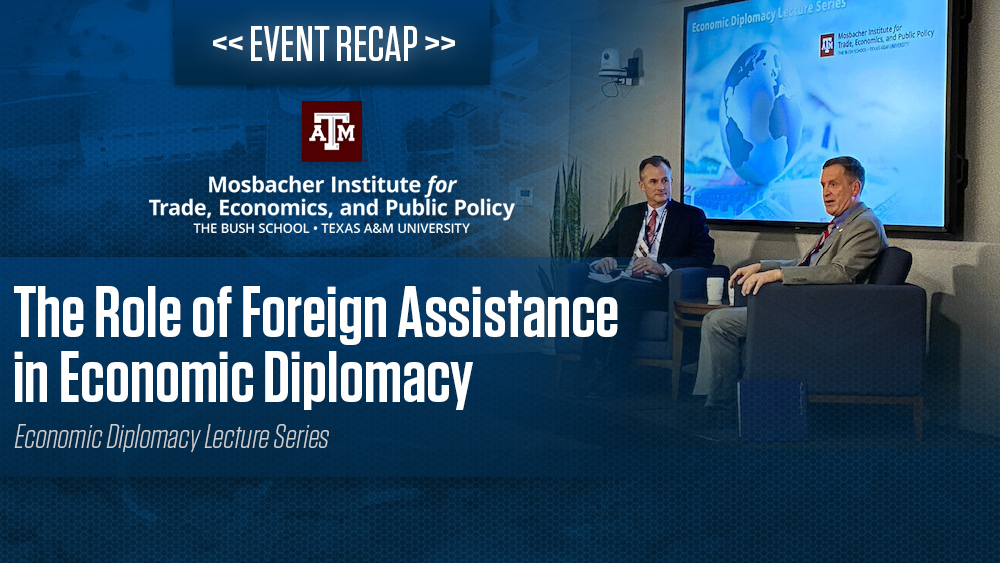
On September 22, 2022, the Mosbacher Institute for Trade, Economics, and Public Policy hosted Ambassador Mark Green, the 18th Administrator of the U.S. Agency for International Development (USAID), at the Bush School DC to speak on the vital role foreign assistance plays in U.S. economic diplomacy. This event was the first of the Mosbacher Institute’s three-part Economic Diplomacy Lecture Series that aim to highlight the tools of U.S. economic diplomacy that are key to advancing the strategic and security interests of the United States.
Following a welcome by Mosbacher Director Raymond Robertson, Robert Mosbacher Jr. introduced Ambassador Mark Green, emphasizing his distinguished career serving in the U.S. public and private sectors. Ambassador Green led USAID’s international humanitarian efforts with a clear mission to reduce development dependency and promote the journey to self-reliance. In his speech, the Ambassador focused on three broad foreign assistance principles required to fulfill this purpose, including acknowledging the power of private enterprise, understanding the government’s role in building state capacity, and recognizing the youth’s eagerness to harness innovations through private investment and emerging technologies. By prioritizing reform-oriented foreign assistance that works to produce “hand-ups” versus “handouts,” Green stated, “there is no limit to what can be achieved.” Ambassador Green featured the Millennium Challenge Corporation (MCC) and several USAID public-private partnerships as prominent examples of initiatives executing the principles of converging development goals with business interests to solve real-time global development issues.
He followed up his speech by answering questions from the audience focused on the purpose of metric-oriented development goals, building self-resiliency through localization efforts, and how the actions of USAID build and advance U.S. economic diplomatic goals. In his responses, the Ambassador focused heavily on the issue of internal displacement in the trajectory of economic development and the importance of the U.S. maintaining strong supportive allies as the growing demands for humanitarian assistance are directing resources away from long-term development projects. Finally, Ambassador Green proudly reminded the audience that the United States must not remain shy about what it brings to the table. In comparing the foreign assistance given by the United States to that given by authoritarian-led countries, he stated the latter can always produce money, but they cannot compete with the United States’ currency of values. While proud of what the United States offers, he acknowledged the importance of being open about past shortcomings. He stated there is no replacement for candidness and humility when fostering cooperation in international relationships and advancing economic diplomacy.
The Economic Diplomacy series continues on October 6, with Ambassador Carla Hills, U.S. Trade Representative from 1989 to 1993 and chief NAFTA negotiator, speaking about the importance of trade in improving economic opportunities and diplomatic relations.

